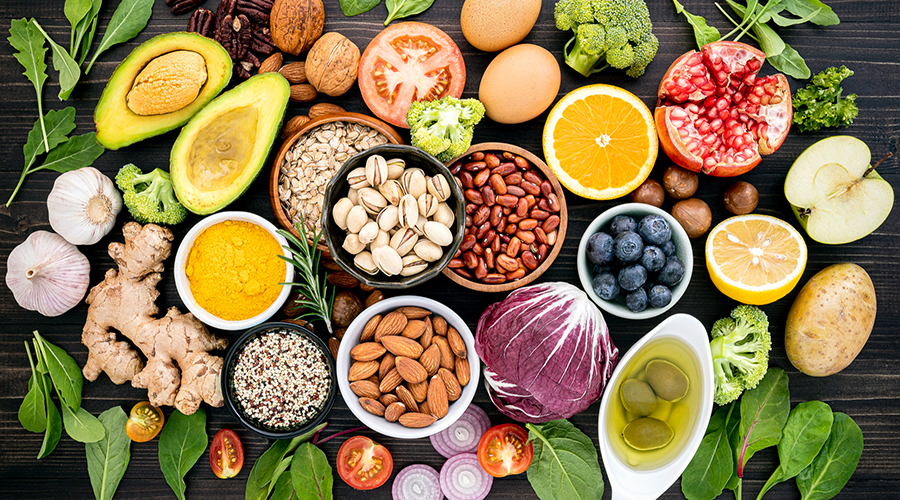
All you could think of if someone asked you to list out high-protein foods is chicken, fish, eggs, Greek yogurt, beans, and nut butter. These are probably the ones anyone would mention to include in your meal if you want to eat a protein-rich food.
They are mistaken, though, as protein is not exclusively found in meat. In fact, there are many plant foods that pack such a powerful protein punch into your digestive system that you won’t even consider meat as a source of protein.
Protein is crucial for development, tissue repair, and post-exercise recovery. It is made up of smaller parts called amino acids. Our bodies can only make 11 out of the 20 amino acids that are required for good health. The remaining nine amino acids, known as “essential amino acids,” must be obtained from food.
A surprising amount of muscle-building nutrients can be found in many vegetables, cheeses, and grains, and by including them in your meal, you can significantly increase the protein content.
If you eat a wide variety of foods, you will be sure to get the protein you require. Some food items only provide a few essential amino acids, while others provide all of them. Here is a list of surprising sources of protein that you might have never heard of.
Surprising Sources of Protein You Didn’t Know
Sweet Potato: All people hear about when we hear the word ‘potato’ is carbohydrates. On the other hand, sweet potatoes contain both starch and protein, and a cup of baked sweet potatoes contains about 4 grammes of protein, which is equivalent to about a half cup of low-fat milk.
Pistachios are delicious little morsels that provide a fantastic combination of plant protein, iron, and zinc. These are the significant components of meat, and vegetarians undoubtedly need to be aware of them. Pistachios and almonds have the most protein of all nuts, with just one handful containing 6 grams. Cashews, which contain 5 grams of protein per handful, are another protein substitute.
Amarnath is thought to be the trendy quinoa’s cousin, and thanks to its high protein content, it is slowly gaining in popularity. Amarnath is ancient pseudo-grains; they are gluten-free and contain all the essential amino acids. Amarnath can be experimented with to create a crunchy topping, can be cooked into porridge, and can be used in salads.
Peas, like all legumes, are high in protein, with a cup of peas containing nearly 8g of it. Peas are rich in fibre, vitamin C, and vitamin k and resemble tiny pieces of dynamite. Fresh peas can be blended into pestos and added to pasta dishes, and salads.
One tablespoon of peanut butter can contain up to 5 g of protein, making it another Surprising source of protein that you shouldn’t ignore. Peanut butter could be easily spread on morning toast or could be used with apple slices. Peanut butter provides essential amino acids, vitamin E, and magnesium. Since all nut butters contain protein, you can try almond butter if you don’t like peanuts or have allergies to them.
Because of their high nutritional value—150g of broad beans contain up to 12g of protein, along with fiber, folate, vitamin C, thiamine, and iron—broad beans are referred to as the “kings of beans.”
Artichoke hearts might be one of the surprising protein sources you might have heard of. Artichoke hearts contain 4 grams of protein and can be consumed in a variety of ways.
Chia seeds have 4 grammes of protein and 11 grammes of fibre per 2 tablespoon serving, which makes them a good source of protein in addition to helping you stay hydrated. Oatmeal could be made with chia seeds or a glass of fruit juice could be used to make a bowl of rich chia pudding. If this option is not healthy, I don’t want it to be.
Pumpkin seeds are one of the surprising sources of protein that no one expected. These seeds, also referred to as pepitas, are not your typical seeds. Pumpkin seeds are nutrition powerhouses that have 7 grammes of protein and 13 grammes of heart-healthy fats per serving.
Sesame seed butter, also known as tahini, is a delectably nutty Mediterranean substitute for almond or peanut butter. A tablespoon of tahini contains 3 grams of protein and 100 calories. Vegetables can be drizzled with tahini to add flavour and protein.
